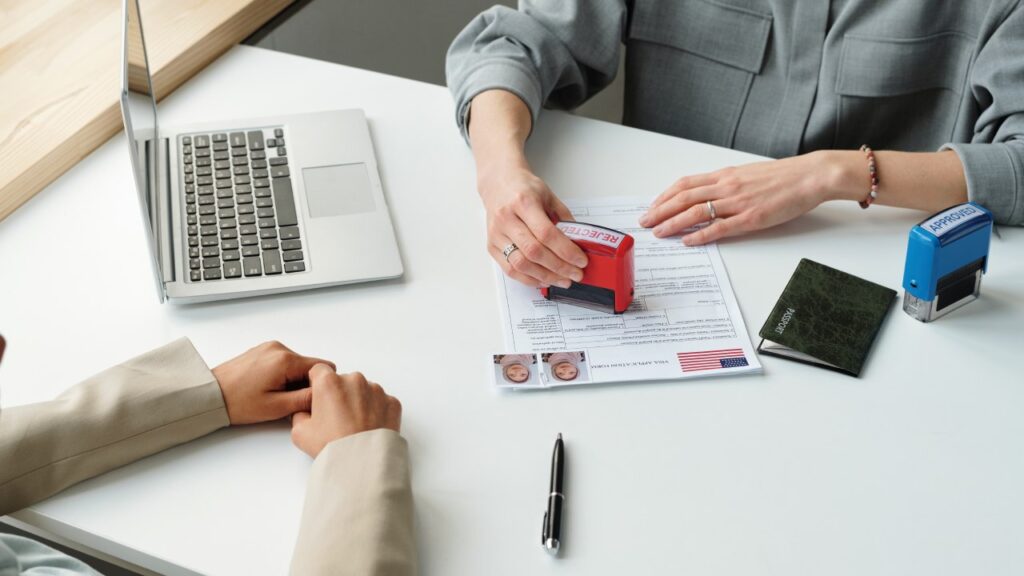Foreign nationals seeking to live, work, or invest in Serbia must navigate the legal framework for obtaining a residence permit, which has undergone significant modernization in 2024 and 2025.
With the introduction of electronic applications, biometric residence cards, and stricter documentation rules, understanding the updated process for obtaining a temporary residence permit in Serbia is more important than ever.
Whether you’re relocating for work, education, family reunification, or property ownership, this guide will walk you through the 2025 legal requirements, application steps, and practical tips to ensure your stay in Serbia is legal and secure.
As Serbia prepares for increased foreign investment, workforce demand, and EU-aligned legal reforms, staying compliant with immigration laws is a strategic advantage.
Residence Permit vs. Unified License – What’s the difference?
As of the 2024 reforms, Serbia has adopted the Unified License (sr. jedinstvena dozvola) model, which merges two previously separate procedures:
- Temporary Residence Permit (privremeni boravak)
- Work Permit (radna dozvola)
If you are coming to Serbia for employment, you no longer need to apply for these two documents separately. Instead, you apply for the unified license via an online portal, which, if approved, grants both the right to reside and to work in Serbia.
However, if you’re relocating for other reasons, such as:
- Property ownership
- Family reunification
- Education or language study
- Religious, humanitarian, or medical grounds
…then you apply only for a temporary residence permit, not the unified license.
In summary:
- Apply for the unified license if your legal basis is employment or entrepreneurship
- Apply for a residence permit if your stay is based on any non-work-related ground
The unified license procedure is governed jointly by the Ministry of Interior and the National Employment Service (NSZ), and applications must be submitted electronically via the online Portal for Foreigners.
Grounds for temporary residence in Serbia (2025 Updated List)
According to the current Law on Foreigners and the updated Rulebook on Temporary Residence (effective February 1, 2024), a foreign citizen may apply for temporary residence in Serbia on the following legal grounds:
- Employment or establishment of a company
- Education or school enrollment
- Studying at university
- Learning the Serbian language
- Scientific research or academic activity
- Participation in international student exchange programs
- Religious service (priests, monks, missionaries)
- Medical treatment or long-term care
- Property ownership (real estate in Serbia)
- Family reunification (marriage, minor children, dependent relatives)
- Volunteering or internship programs
- Special categories:
- Accredited foreign journalists
- Seasonal workers
- Audiovisual project participants (film, TV, media)
- Experts engaged in state-supported projects
- Non-formal education (e.g., IT academies, pilot training, vocational courses)
- Sports training for minors
- Humanitarian stay
- Victims of human trafficking
- Other justified reasons under Serbian law
Each of these grounds requires specific supporting documentation. Choosing the correct legal basis is essential for future renewals since not all legal bases allow the same options for renewal. Many also differ in work rights and eligibility for permanent residence.
Who needs a residence permit in Serbia?
A residence permit is required for any foreigner intending to stay in the Republic of Serbia for more than 90 days within a 180-day period, regardless of visa exemptions. This includes:
- Nationals of visa-free countries who want to stay longer than the permitted short-term period
- Foreigners entering Serbia with a Visa D intending to remain long-term
- Individuals relocating for employment, education, property ownership, or family reasons
- Entrepreneurs and freelancers setting up business activity in Serbia
- Foreigners already in Serbia seeking to extend their legal stay

A temporary residence permit (sr. privremeni boravak) is the legal foundation for opening a bank account, purchasing real estate, obtaining health insurance, enrolling in school, and applying for work authorization.
Proof of means, insurance, and accommodation
To be granted a residence permit in Serbia, every applicant must provide evidence that they:
- Have sufficient financial means to support themselves during their stay, as shown by a Serbian bank account in any currency
- Hold valid health insurance coverage, at least for the first year (domestic or international insurances are all accepted)
- Have legal and private accommodation in Serbia (rented, owned, or otherwise documented). Note: Hotels and other short-term accommodations are not accepted.
These are mandatory requirements under current regulations and must be documented during the application process.
Biometrics, TRP ID card, and validity
Once your residence permit application is accepted, you will be required to:
- Appear in person to provide biometric data (photo, fingerprints, signature)
- Confirm your identity using a valid travel document
A biometric residence permit card will be issued within 7–10 days after data collection. The card contains your personal data, legal basis for stay, and registered address. Residence permits are valid for up to 3 years, depending on the legal ground.
Common mistakes and red flags
Avoiding basic errors can save weeks or months of delays. The most common problems include:
- Overstaying before applying – can often be resolved, but requires legal handling
- Missing or untranslated documents – foreign documents must be translated into Serbian by a court-certified translator
- Exception: Health insurance policies are accepted in English
- Inaccurate address information – declared address must match your lease, white card (address registration upon arrival), or previous residence permit if you’re renewing your already issued temporary residence permit
- Failure to check emails or the portal leads to missed biometric appointments or MUP additional documents requests
- Not verifying Visa D requirements – some applicants must obtain a Visa D before entering Serbia. Some foreigners can enter Serbia without a visa, but a Visa D may still be required if applying for the temporary residence permit (e.g., Citizens of P.R.China)
- Wrong or mixed documents, such as submitting foreign bank statements or blending documentation from multiple legal grounds
Even small mistakes can result in rejections. Consulting an experienced immigration lawyer dramatically reduces these risks.
How a lawyer helps you avoid rejection
Applying for a Serbian residence permit may seem straightforward, but the process is filled with technical requirements that are easy to overlook, especially under the new electronic system.
In addition, numerous exceptions and nuances depend on your legal basis and the circumstances presented in your application.
A lawyer experienced in immigration law ensures that:
- Your application is submitted on the correct legal basis, minimizing the likelihood of the Ministry of Interior (MUP) requesting additional documents or unnecessary interviews
- All documents are correctly formatted, translated, and complete
- Potential red flags are addressed before submission
- Deadlines, appointments, and system messages are carefully tracked
- You remain compliant with Serbian law and avoid unnecessary stress
At Anđelković Law, we’ve helped hundreds of clients secure residence in Serbia efficiently and with a strong legal foundation for renewal or transition to permanent status.
Need help? Contact us for trusted, professional support with residence permits, work visas, permanent residence, and long-term relocation planning in Serbia, as well as for Serbian citizenship.





